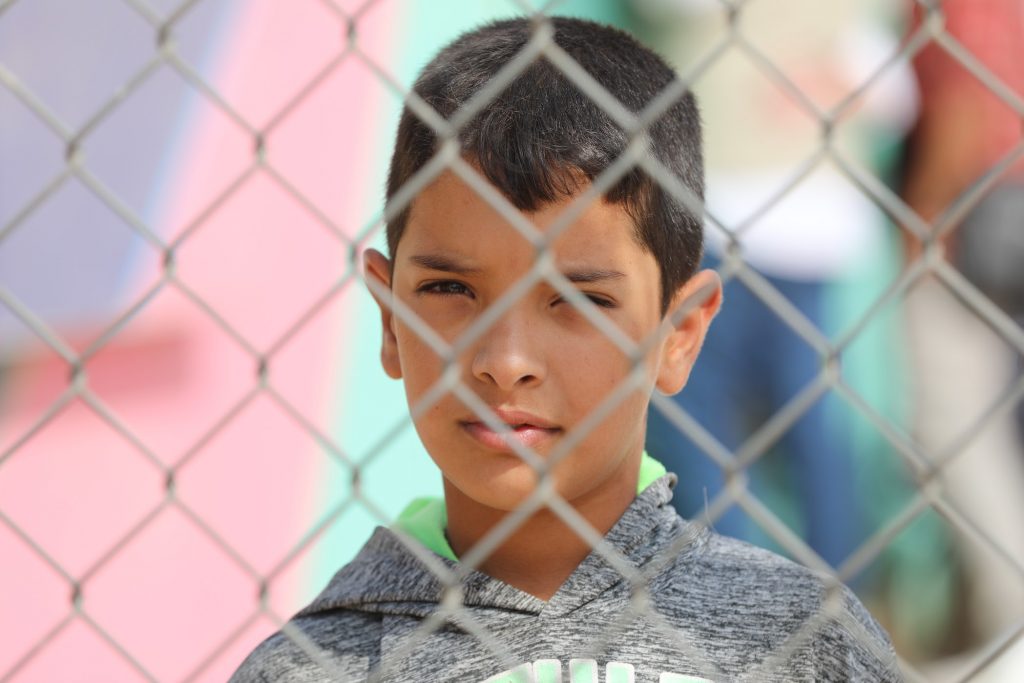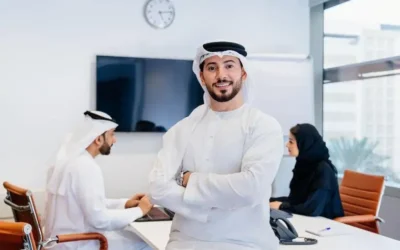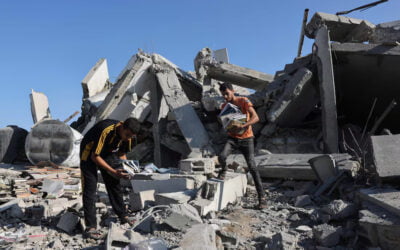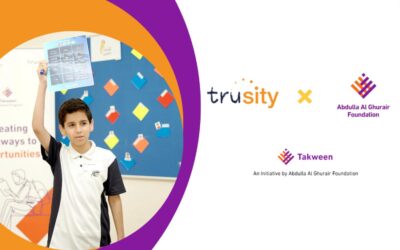Refugee Education is crucial to preventing a lost generation, according to a new report by Abdulla Al Ghurair Foundation for Education
Dubai, UAE – 18 February 2022: Abdulla Al Ghurair Foundation for Education today released a series of calls to action to the global education community to act on providing refugees access to education by leveraging evidence-based effective practices. At risk is a “lost generation” of refugee youth, both in terms of individual employability and wider reconstruction efforts, who face severe disruption to their education which has been further exacerbated by the COVID-19 pandemic.
The UN Refugee Agency UNHCR estimates that globally more than 80 million people are displaced by climate change and political unrest, and that number is projected to grow in the coming years and decades.
The seven calls to action are contained within the new report, ‘High, Low, or No Tech? A Roundtable Discussion on the Role of Technology in Refugee Education’, jointly co-authored by Abdulla Al Ghurair Foundation for Education, Save the Children, and EdTech Hub. The report from the Third Annual Roundtable Discussion, brought together global education stakeholders from diverse perspectives and geographic locations, including donors, practitioners, and beneficiaries of EdTech programs in refugee settings to explore the Role of Technology in Refugee Education. The report aims to contribute to the global discourse on EdTech and refugee education and provide effective solutions to mitigate the impact of interrupted education due to migration and displacement.
The report highlighted the harsh reality faced by refugee children with disconcerting statistics on the disparity of access to education where 48% of school-age refugees are unable to attend school. Only 68% of refugee children attend primary school – compared with 91% of children globally – and only 34% of refugee children were enrolled at secondary level in 2020 and are more likely than others to not return to school when schools reopen and may drop out quickly if they do return.
Refugee populations have unfortunately had to become accustomed to shocks that interrupt their access to education. It is time our education systems were better prepared to respond to shocks, taking an anticipatory action approach. Technology can support stakeholders in adopting such an approach.
The report presents seven calls to action to assist refugees and host community education actors to better respond to children’s learning and wellbeing needs, leveraging evidence-based effective practices, in the face of future instabilities.
Through the roundtable, the co-hosts discussed innovative programs and empirical cases that have worked on the ground and stressed the critical role of multi-stakeholder collaborations to effectively respond to the challenges of refugee education.
Multi-stakeholder collaborations are impactful when there is an alignment of shared values, prioritization and accountability highlighted H.E. Abdul Aziz Al Ghurair, Chairman of AGFE, during the event. He emphasized, “We need strategic partnerships funding EdTech programs together, ensuring relevant skills and employability. Adopting collaborative principles informs the design of EdTech solutions and by working together, we can make a tangible impact on refugee education.”
The roundtable also addressed the need to bridge the gap on digital literacy, and the skills and training needed for EdTech interventions to be a success.
“EdTech interventions should never be solely about the technology but about the learner’s socio-emotional growth” stated Dr. Sonia Ben Jaafar, CEO of AGFE, underlining the significance in prioritizing student and teacher learning and wellbeing. “Our children may be learning in isolation, but they need to be growing in societies. Therefore, it is important that EdTech programs extend from academic capacity building to also providing psychosocial wellbeing and resilience that supports refugees to navigate trauma.”
The report urges for inclusive, coordinated, committed, and sustained engagement of a range of partners, along with localization of EdTech initiatives, high, low, and no-tech modalities, and stronger technological infrastructure. The roundtable recognized that EdTech is not a cure-all, however, if combined with blended options, innovative interventions, accessibility, and cost-effectiveness, EdTech has immense potential to become a valid, equitable, and sustainable education choice for refugees and beyond.
CALLS TO ACTION TO THE GLOBAL EDUCATION COMMUNITY
- Listen, reflect, and engage with refugee students, teachers, and parents.
- Build multi-stakeholder collaborations to provide holistic responses to refugee education.
- Prioritize localization in EdTech approaches to refugee education.
- Use high, low, and no-tech modalities for refugee education to align with the context.
- Strengthen the technological infrastructure to increase access for all.
- Prioritize student and teacher learning and wellbeing.
- Maintain a sustained focus on EdTech and refugee education.



